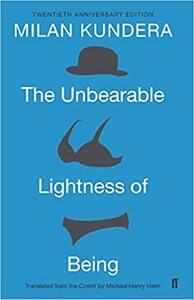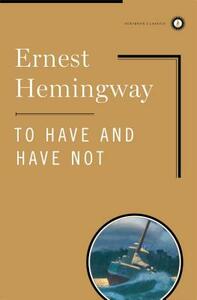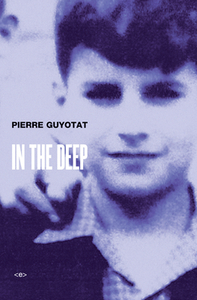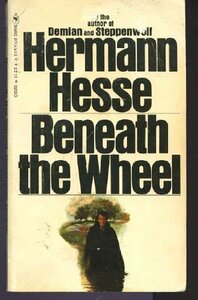Take a photo of a barcode or cover
screen_memory's Reviews (234)
Are you so vain that your idea of the perfect novel is one written about you? Look no further than Calvino's If On a Winter's Night a Traveler. How did he write a book about you when you likely were not alive when the novel was first published? Well, it isn't only about you. It's also about me, those I've gifted the book to and all others who have read it. If On a Winter's Night... is a book about ***SPOILER ALERT*** you reading If On a Winter's Night....
Wait, you say, I'm giving a four-star review to a book about the reader reading that very book? Am I so arrogant that I enjoyed reading about myself reading a novel in the very novel I was reading in which I am reading the same book? Not necessarily.
Here's is what happens in the book itself: "You" or the "Reader" purchase Italo Calvino's If On a Winter's Night a Traveller. The self-referential nature of the text and the references to you reading the book you have in hand is at first puzzling. Once Calvino is finished describing your reading process, we are introduced to the plot of If On a Winter's Night.... It seems an intriguing thriller, and once the chapter ends we turn the page at once to learn more of the mysterious organization the hero belongs to and why he was to exchange suitcases with a certain unidentified contact. But once you do so "You" learn that the following chapter does not belong to If On a Winter's Night. It belongs to another book entirely.
"You" believe this to be a printing error and so, naturally, you make your way to your local bookstore in order to hopefully purchase a properly printed copy. Once there, you meet the "Other Reader," a woman named Ludmilla around your age who has also occasioned to this bookstore in hopes of locating a proper copy, but no such copy is to be found. Instead, "You" and "The Other Reader" purchase a copy of the book, Outside the Town of Malbork, to which the mistakenly printed second chapter belongs. Before parting ways, You ask The Other Reader for her number, poorly disguising your romantic intentions with the suggestion that you two share your thoughts on the new book.
You then begin reading the next chapter of this new book and, once you become engrossed in the plot, the chapter ends. Not a problem; simply flip the page and continue reading. But a familiar problem presents itself: the characters and the setting do not match those of the prior chapter. You agree to meet Ludmilla at a Cimmerian professor's office who could likely clear up the confusion and loan you a complete copy of either book. You are given a manuscript of Outside the Town of Malbork, but of course it does not at all match with the book of the same title you have just read. But this one is different; the manuscript is incomplete. Also, it bears an altogether different title, Leaning On a Steep Slope. After reading as much text as is available, you learn the author of Leaning on a Steep Slope actually wrote the book in Cimbrian after the Cimmerian state became part of the Cimbric People's Republic after WWII, giving it the title, Without Fear of Wind or Vertigo and publishing it under a different name.
Yes, Outside the Town of Malbork is a fake, a forgery. But after reading Without Fear of... you realize...
The book continues in this vein, leading you from one fake manuscript to another incomplete manuscript supposedly penned by someone entirely different under a different name, leading you into discovering a worldwide conspiracy of mass forgery in order to fill the world with apocrypha, to proceed beyond the mystification of the world via the novel and mystify it further through forgery and alteration of the novel, of every novel.
If On a Winter's Night a Traveller is, at first, difficult to assimilate yourself into, but once learning that it is a novel about You, the reader realizes it is, at its most simple interpretation, a book about the pleasures of reading. The book follows a formula: each odd chapter concerns You and Ludmilla's search, and each even chapter is the text from the book or manuscript You have located. One thing that may prove frustrating to certain readers, especially those who demand closure from their novels, is that they are treated only to the first chapter of each book. Once you become engrossed in the plot of the fictional book, it ends soon after. I read most of the chapters wishing the book actually existed because Calvino had hooked me into that fictional world (which belonged to another fictional world).
What is most impressive about If On a Winter's Night... may actually be the incomplete chapters themselves. Calvino masterfully writes in numerous styles, mystifying and abstracting his own identity from the stories. In one of the later stories I would have sworn I was reading a chapter from a Yukio Mishima book -- so perfectly was it written in his subdued and somber style.
For those who love stories (why else do we read?), If on a Winter's Night was written not only FOR you, but ABOUT you.
Wait, you say, I'm giving a four-star review to a book about the reader reading that very book? Am I so arrogant that I enjoyed reading about myself reading a novel in the very novel I was reading in which I am reading the same book? Not necessarily.
Here's is what happens in the book itself: "You" or the "Reader" purchase Italo Calvino's If On a Winter's Night a Traveller. The self-referential nature of the text and the references to you reading the book you have in hand is at first puzzling. Once Calvino is finished describing your reading process, we are introduced to the plot of If On a Winter's Night.... It seems an intriguing thriller, and once the chapter ends we turn the page at once to learn more of the mysterious organization the hero belongs to and why he was to exchange suitcases with a certain unidentified contact. But once you do so "You" learn that the following chapter does not belong to If On a Winter's Night. It belongs to another book entirely.
"You" believe this to be a printing error and so, naturally, you make your way to your local bookstore in order to hopefully purchase a properly printed copy. Once there, you meet the "Other Reader," a woman named Ludmilla around your age who has also occasioned to this bookstore in hopes of locating a proper copy, but no such copy is to be found. Instead, "You" and "The Other Reader" purchase a copy of the book, Outside the Town of Malbork, to which the mistakenly printed second chapter belongs. Before parting ways, You ask The Other Reader for her number, poorly disguising your romantic intentions with the suggestion that you two share your thoughts on the new book.
You then begin reading the next chapter of this new book and, once you become engrossed in the plot, the chapter ends. Not a problem; simply flip the page and continue reading. But a familiar problem presents itself: the characters and the setting do not match those of the prior chapter. You agree to meet Ludmilla at a Cimmerian professor's office who could likely clear up the confusion and loan you a complete copy of either book. You are given a manuscript of Outside the Town of Malbork, but of course it does not at all match with the book of the same title you have just read. But this one is different; the manuscript is incomplete. Also, it bears an altogether different title, Leaning On a Steep Slope. After reading as much text as is available, you learn the author of Leaning on a Steep Slope actually wrote the book in Cimbrian after the Cimmerian state became part of the Cimbric People's Republic after WWII, giving it the title, Without Fear of Wind or Vertigo and publishing it under a different name.
Yes, Outside the Town of Malbork is a fake, a forgery. But after reading Without Fear of... you realize...
The book continues in this vein, leading you from one fake manuscript to another incomplete manuscript supposedly penned by someone entirely different under a different name, leading you into discovering a worldwide conspiracy of mass forgery in order to fill the world with apocrypha, to proceed beyond the mystification of the world via the novel and mystify it further through forgery and alteration of the novel, of every novel.
If On a Winter's Night a Traveller is, at first, difficult to assimilate yourself into, but once learning that it is a novel about You, the reader realizes it is, at its most simple interpretation, a book about the pleasures of reading. The book follows a formula: each odd chapter concerns You and Ludmilla's search, and each even chapter is the text from the book or manuscript You have located. One thing that may prove frustrating to certain readers, especially those who demand closure from their novels, is that they are treated only to the first chapter of each book. Once you become engrossed in the plot of the fictional book, it ends soon after. I read most of the chapters wishing the book actually existed because Calvino had hooked me into that fictional world (which belonged to another fictional world).
What is most impressive about If On a Winter's Night... may actually be the incomplete chapters themselves. Calvino masterfully writes in numerous styles, mystifying and abstracting his own identity from the stories. In one of the later stories I would have sworn I was reading a chapter from a Yukio Mishima book -- so perfectly was it written in his subdued and somber style.
For those who love stories (why else do we read?), If on a Winter's Night was written not only FOR you, but ABOUT you.









